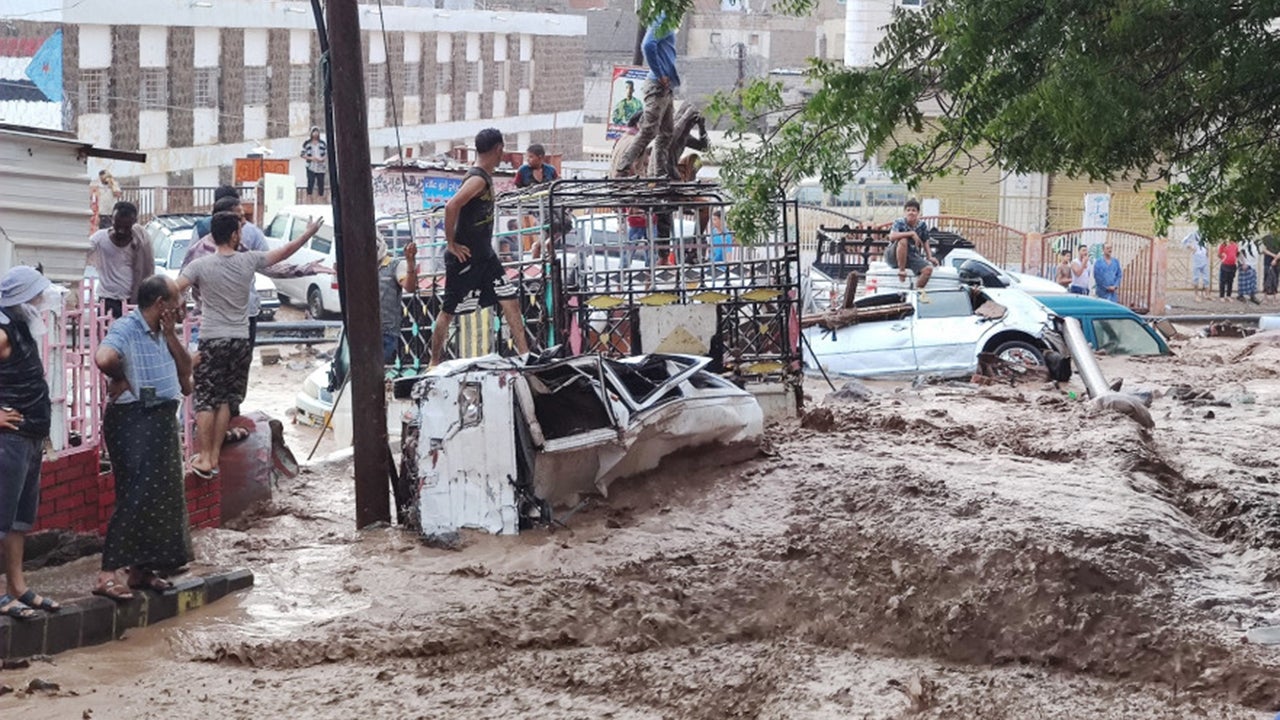
HAIS, Aug 28, 2024 (BSS/AFP) - A clinic in western Yemen has been inundated with suspected cholera patients after heavy rains and flooding sparked fears of a major outbreak in the impoverished and war-ravaged country.
With hundreds of suspected cases overwhelming the facility in Hais, medical staff are stretched to the limit as they battle the outbreak in a region already hit by nearly a decade of war.
Women and children lie attached to intravenous drips to combat diarrhoea, a symptom of what medics fear is cholera.
"The influx of patients has increased due to the floods and rains in Hais," said Bakil al-Hadrami, a doctor at a diarrhoea treatment centre in the town, about 120 kilometres (75 miles) south of the Red Sea port city of Hodeida.
"The staff on duty are overburdened" and services could collapse "at any moment", he told AFP from the clinic, warning of a "medical crisis" if the authorities do not intervene.
There are nearly 164,000 suspected cholera cases across Yemen, a figure that could climb to 250,000 in the coming weeks if the response is not bolstered, according to the United Nations.
Hais, controlled by Yemen's internationally recognised government, was hard hit by flooding that has killed around 60 people and impacted 268,000 others in the Arabian Peninsula's poorest country since late July.
Landslides triggered by flash floods in Al-Mahwit province, west of the rebel-held capital Sanaa, destroyed at least seven homes leaving at least 24 people missing on Wednesday, a police statement quoted by rebel media said.
Devastated by the war that has ravaged medical infrastructure, Hais is now bracing for a new crisis after the floods which can carry water-borne diseases.
"The recent (cholera) wave... has been exacerbated by heavy rains and subsequent flooding, increasing the risk of water contamination," the International Organization for Migration (IOM) said in a recent report.
The Hais clinic received 530 suspected cholera cases between August 1 and 18, Hadrami said.
Authorities have only been able to confirm three positive cases after samples were sent to a lab in nearby Taiz, he said, amid limited testing capabilities.
"This is evidence that the cholera epidemic is present and spreading within Hais," Hadrami said.
"The situation will only get worse and worse."
- 'Cholera is widespread' -
Cholera, caused by contaminated water or food, is endemic to Yemen, which has been gripped by conflict since 2014 between Iran-backed Huthi rebels and the government which is supported by Saudi Arabia.
Severe water shortages, dilapidated healthcare infrastructure and rising malnutrition have contributed to a cholera spike since late last year.
The latest flooding only added to challenges facing relief efforts in a country where aid workers risk abduction by the Huthis and more than half the population needs humanitarian assistance.
In Hais, the flooding has also dislodged landmines, increasing the risks for those trying to reach needy communities, according to the IOM.
Among those requiring assistance is Abdullah al-Shmairi who fears his entire family may now have cholera after his son tested positive.
"A week ago, my son was infected with cholera and the test was sent to Taiz and it turned out" positive, the 46-year-old father of four told AFP from the Hais clinic.
"Our whole household is now suffering from diarrhoea... but we were unable to get the treatments here and sometimes we have to bring them in from outside," the bakery worker said.
"Cholera is widespread in and around Hais."
- Funding shortfall -
Yemen, facing one of the world's worst humanitarian tragedies, had 2.5 million suspected cases during the last cholera outbreak from 2016 to 2022, according to the IOM.
It was "the largest ever reported cholera outbreak in recent history", with more than 4,000 deaths, the IOM said.
Another cholera spike late last year went largely underreported because of limited access and information.
As of August 10, 163,944 suspected cases have been reported with 647 associated deaths nationwide in 2024, a spokesperson for the United Nations children's fund UNICEF told AFP.
Most cases have been in rebel-held areas, the spokesperson said.
The UN's cholera response plan for the country initially estimated 60,000 cases between April and September 2024, said Lisa Doughten, Director of Financing and Partnerships at the UN humanitarian office OCHA.
But the latest figures have swelled beyond estimates, with current funding only enough to address a quarter of cases, she told the UN Security Council on August 15.
"Unless these response efforts are immediately bolstered, the number of suspected cases could further increase, potentially reaching more than 250,000 in just a few weeks."